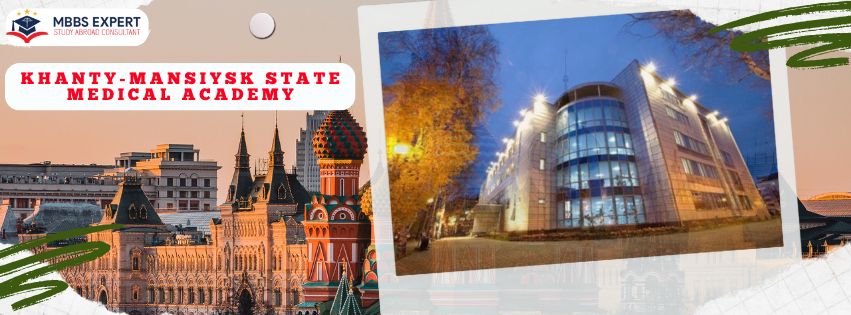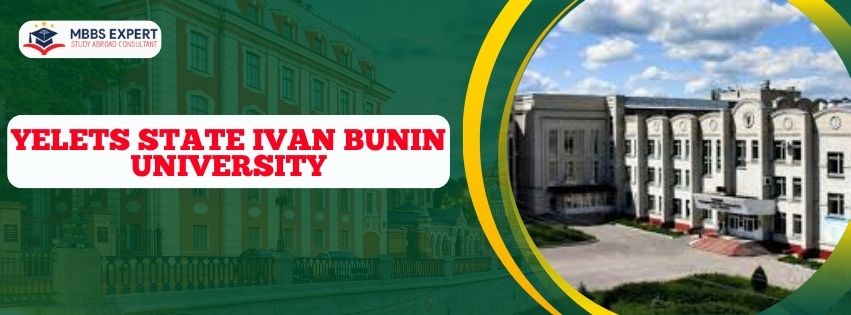88401 Total Views , 2 views today
Kalmyk State University
A Beacon of Knowledge and Cultural Heritage
Kalmyk State University (KSU) is one of Russia’s prominent institutions of higher learning, located in Elista, the capital of the Republic of Kalmykia. Founded in 1970, the university has played a crucial role in the development of the region’s education system, providing students with opportunities to explore various disciplines while preserving and promoting Kalmyk culture and heritage. Over the years, Kalmyk State University has evolved into a multidisciplinary institution offering high-quality education, research opportunities, and community engagement.
Historical Background
The establishment of Kalmyk State University in 1970 was a significant milestone for the Republic of Kalmykia. Before its founding, students from the region had to travel to other parts of the Soviet Union to obtain higher education. With the creation of the university, local students gained access to a quality education closer to home, fostering regional development and intellectual growth.
Initially, KSU started with a limited number of departments and faculties, focusing primarily on pedagogy, humanities, and agricultural sciences. Over time, it expanded its academic offerings to include engineering, economics, law, medicine, and environmental sciences. The university has since become a key institution in Russia’s educational landscape, attracting students from across the country and beyond.
Academic Programs and Faculties
Kalmyk State University offers a diverse range of academic programs at undergraduate, graduate, and doctoral levels. Its faculties cover a broad spectrum of disciplines, ensuring that students receive a well-rounded education. The major faculties at KSU include:
- Faculty of Humanities: This faculty offers programs in history, philosophy, sociology, and linguistics. It plays a vital role in the study and preservation of the Kalmyk language and cultural heritage.
- Faculty of Natural Sciences: Covering subjects such as biology, chemistry, physics, and geography, this faculty focuses on scientific research and environmental conservation efforts.
- Faculty of Economics and Business: Students in this faculty gain knowledge in business administration, finance, and economic analysis, preparing them for careers in the corporate and government sectors.
- Faculty of Law: Providing legal education, this faculty equips students with the necessary knowledge to work in various legal professions, including advocacy, judiciary, and public administration.
- Faculty of Agriculture and Veterinary Sciences: Given Kalmykia’s strong agricultural roots, this faculty plays a crucial role in advancing modern farming techniques and animal sciences.
- Faculty of Engineering and Technology: Offering courses in mechanical engineering, IT, and industrial technology, this faculty is dedicated to innovation and technical advancements.
- Faculty of Medicine and Healthcare: With programs in general medicine, nursing, and pharmacy, this faculty contributes to the region’s healthcare system by producing skilled medical professionals.
In addition to these faculties, KSU offers postgraduate and doctoral programs, enabling students to engage in advanced research and contribute to their respective fields.
Research and Innovation
Kalmyk State University is a hub for research and innovation, particularly in fields relevant to the region’s socio-economic and environmental landscape. Some key research areas include:
- Buddhist Studies and Kalmyk Culture: The university actively engages in research on Kalmyk traditions, folklore, and Buddhism, which is the dominant religion in the region.
- Environmental Sustainability: Researchers at KSU study the unique steppe ecosystem of Kalmykia, working on conservation strategies and sustainable agriculture.
- Renewable Energy: With Kalmykia’s strong potential for wind and solar energy, the university is involved in research projects aimed at harnessing renewable resources.
- Medical Research: The faculty of medicine is engaged in public health studies, particularly focusing on rural healthcare and traditional healing practices.
- Linguistic and Ethnographic Studies: Researchers at KSU work on preserving the Kalmyk language and documenting oral traditions, ensuring that the region’s cultural identity remains strong.
Through partnerships with other universities and research institutions in Russia and internationally, KSU continues to foster a vibrant academic and research environment.
International Collaborations and Exchange Programs
Kalmyk State University maintains active international partnerships with universities across Europe, Asia, and North America. These collaborations facilitate student and faculty exchange programs, joint research initiatives, and cultural exchange activities.
Programs such as Erasmus+ and bilateral agreements with institutions in China, Mongolia, Germany, and the United States provide students with opportunities to study abroad and experience different academic and cultural settings. This global perspective enhances the university’s academic standing and provides students with valuable international exposure.
Campus Life and Student Activities
The university offers a vibrant campus life with numerous student organizations, clubs, and extracurricular activities. These include:
- Cultural Clubs: Various student groups focus on Kalmyk traditions, music, and dance, helping preserve the region’s rich heritage.
- Sports Teams: The university promotes physical well-being through sports such as football, basketball, wrestling, and traditional Kalmyk archery.
- Academic Societies: Subject-based student organizations encourage scholarly discussions, research projects, and intellectual engagement.
- Volunteer Programs: Many students participate in community service initiatives, including environmental conservation and educational outreach.
The university’s emphasis on holistic development ensures that students grow both academically and personally during their time at KSU.
Indians at Kalmyk State University
In recent years, Kalmyk State University has attracted a growing number of Indian students, particularly in the fields of medicine, engineering, and business. Many Indian students choose KSU for its affordable tuition, quality education, and the opportunity to study in an internationally diverse environment.
The Faculty of Medicine and Healthcare is particularly popular among Indian students, as Russian medical degrees are recognized globally and provide an excellent foundation for careers in healthcare. Indian students benefit from well-equipped laboratories, experienced faculty, and hands-on clinical training. The university also offers support services, including language assistance, cultural adaptation programs, and student organizations that help Indian students feel at home.
Additionally, Indian cultural festivals, such as Diwali and Holi, are celebrated on campus, fostering a sense of community among international students. Indian cuisine is also available in some university dining facilities, further enhancing the student experience.
Many Indian students have successfully completed their education at KSU and have gone on to establish careers in their respective fields, both in Russia and back in India. The university’s commitment to fostering international student integration has made it an appealing destination for Indian students seeking a world-class education.
Campus Life and Student Activities
The university offers a vibrant campus life with numerous student organizations, clubs, and extracurricular activities. These include:
- Cultural Clubs: Various student groups focus on Kalmyk traditions, music, and dance, helping preserve the region’s rich heritage.
- Sports Teams: The university promotes physical well-being through sports such as football, basketball, wrestling, and traditional Kalmyk archery.
- Academic Societies: Subject-based student organizations encourage scholarly discussions, research projects, and intellectual engagement.
- Volunteer Programs: Many students participate in community service initiatives, including environmental conservation and educational outreach.
The university’s emphasis on holistic development ensures that students grow both academically and personally during their time at KSU.
Contribution to the Regional Economy and Society
As the leading higher education institution in Kalmykia, KSU has a profound impact on the region’s economy and society. Graduates of the university contribute to various sectors, including government, business, agriculture, education, and healthcare. The university also plays a role in local policy development by providing expert analysis and recommendations on socio-economic issues.
Moreover, KSU is a key promoter of Kalmyk culture and identity, organizing festivals, academic conferences, and public lectures that celebrate the unique heritage of the Kalmyk people. Through its commitment to education, research, and community service, Kalmyk State University continues to shape the future of the region.
Advantages and Disadvantages for Indian Students
| Advantages | Disadvantages |
|---|---|
| Affordable tuition fees compared to Western countries | Language barrier, as Russian is the primary language of instruction |
| Globally recognized medical and engineering degrees | Harsh winter climate, which may be challenging for Indian students |
| Well-equipped laboratories and clinical training facilities | Limited availability of Indian cuisine outside the university |
| Diverse international student community | Cultural differences and adaptation challenges |
| Opportunities for research and internships | Distance from India, leading to expensive travel costs |
| Support services for international students, including cultural adaptation programs | Fewer Indian students compared to larger Russian cities like Moscow or St. Petersburg |
Contribution to the Regional Economy and Society
As the leading higher education institution in Kalmykia, KSU has a profound impact on the region’s economy and society. Graduates of the university contribute to various sectors, including government, business, agriculture, education, and healthcare. The university also plays a role in local policy development by providing expert analysis and recommendations on socio-economic issues.
Moreover, KSU is a key promoter of Kalmyk culture and identity, organizing festivals, academic conferences, and public lectures that celebrate the unique heritage of the Kalmyk people. Through its commitment to education, research, and community service, Kalmyk State University continues to shape the future of the region.
Conclusion
Kalmyk State University stands as a beacon of knowledge, fostering academic excellence while preserving the rich cultural heritage of the Kalmyk people. With its diverse programs, research initiatives, and international collaborations, KSU remains a vital institution in Russia’s educational landscape. As it moves forward, the university continues to evolve, embracing innovation while staying true to its mission of educating future generations and contributing to societal progress.




